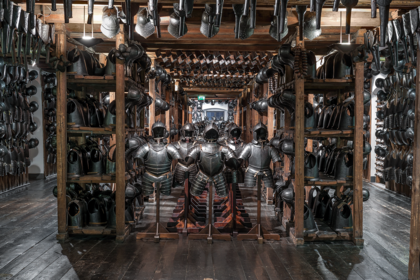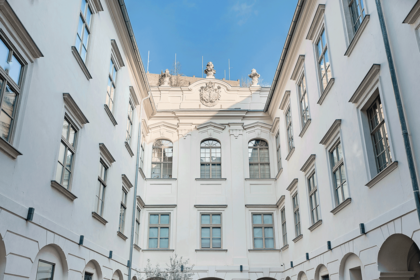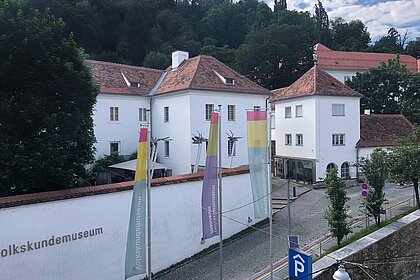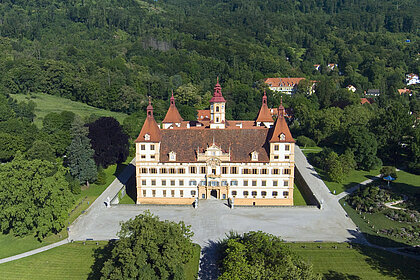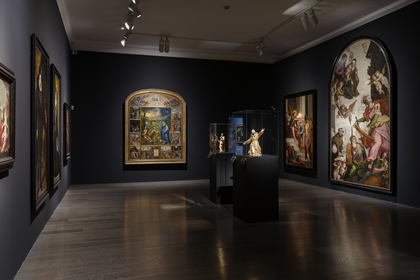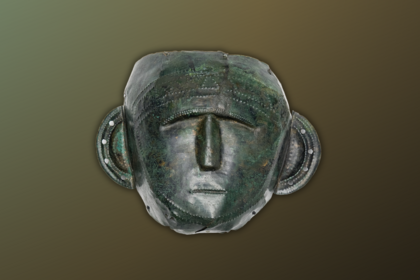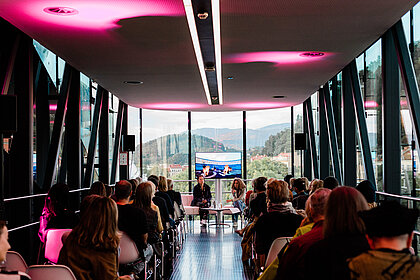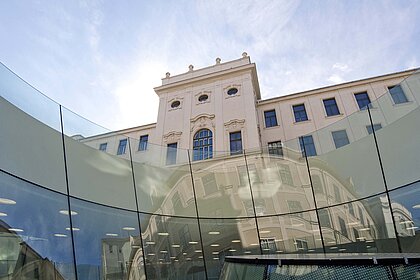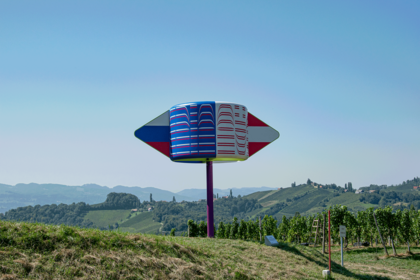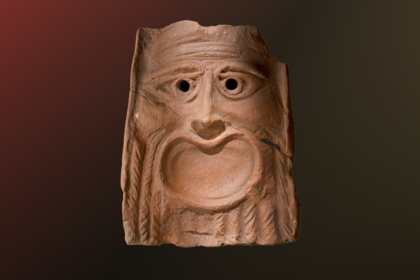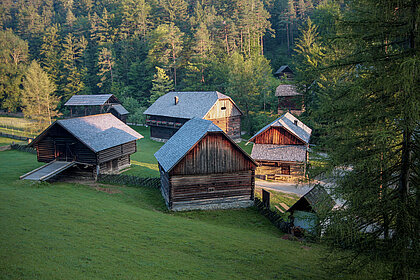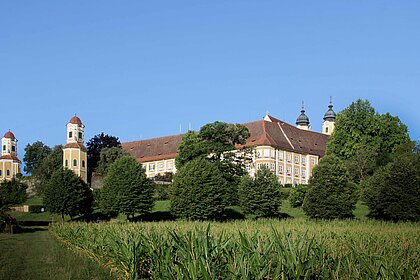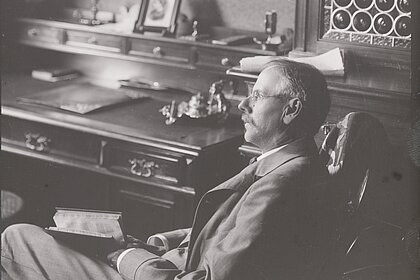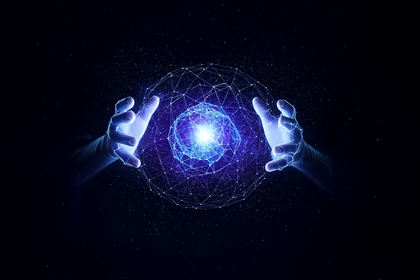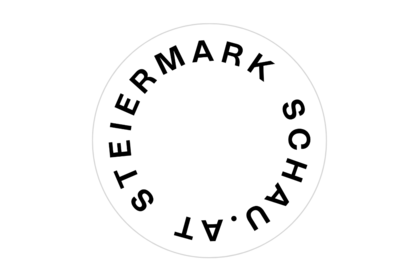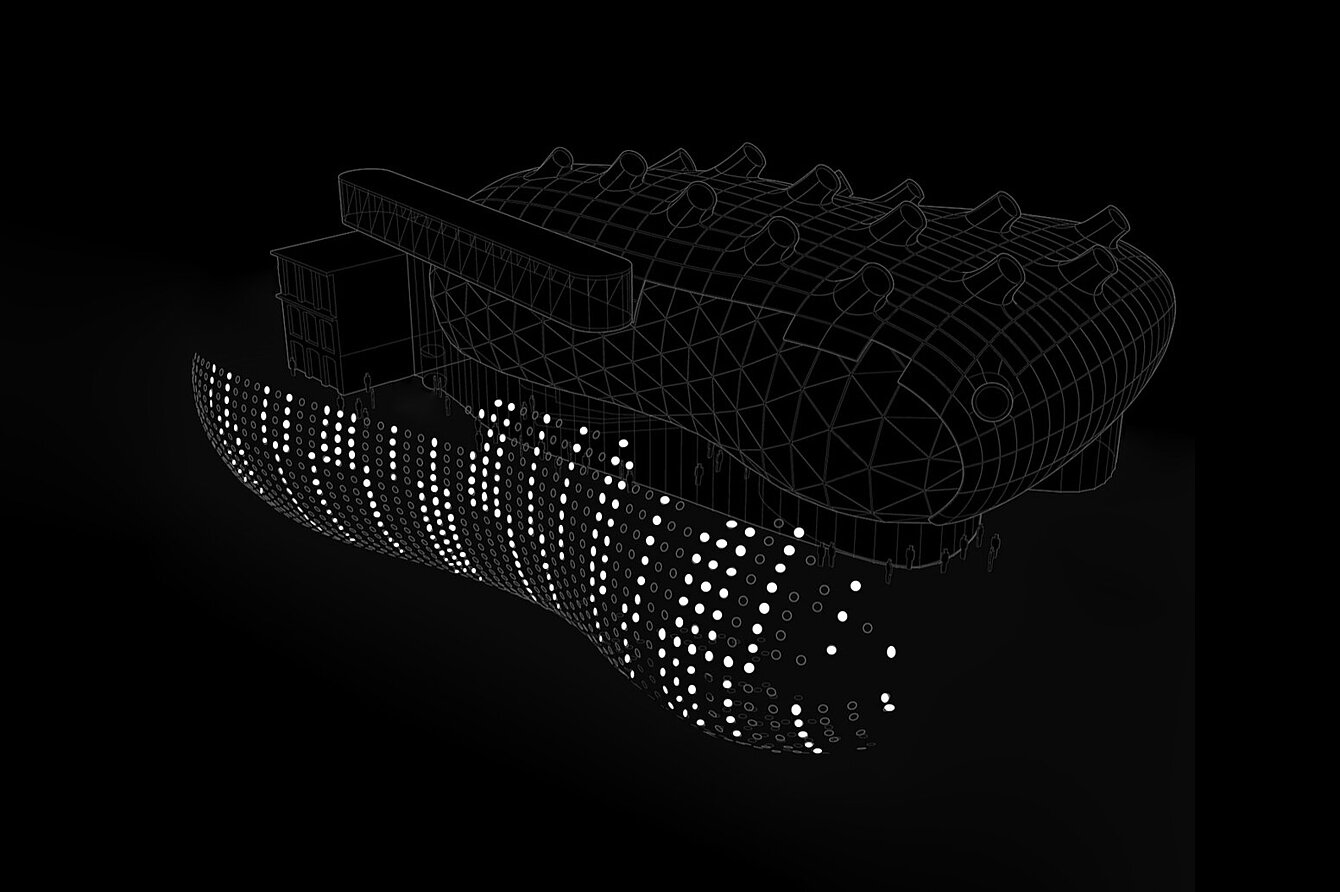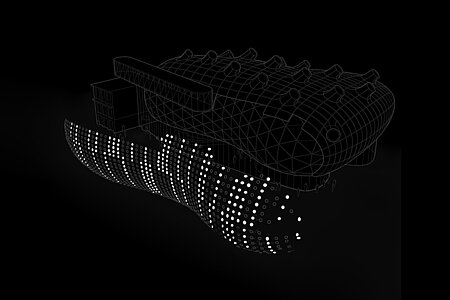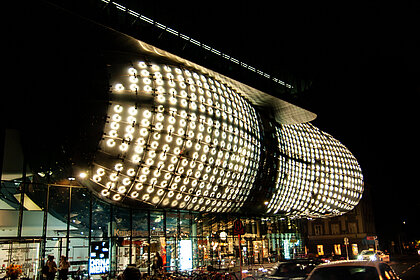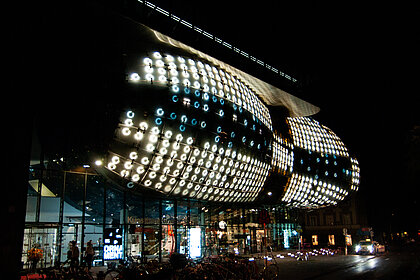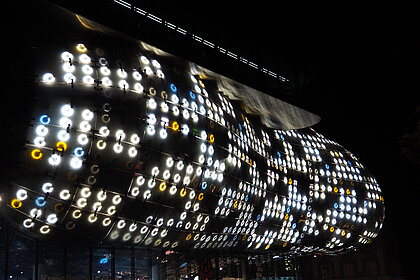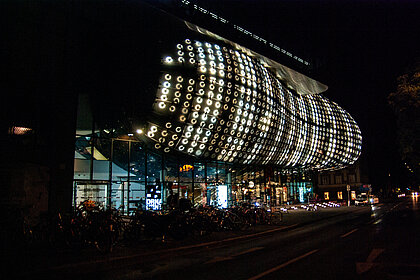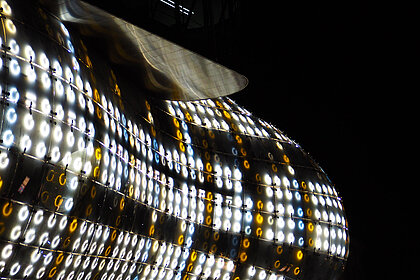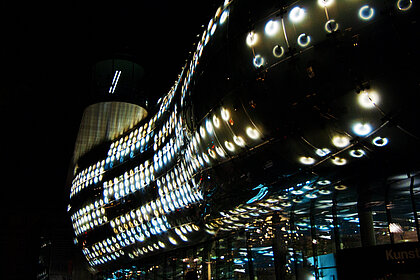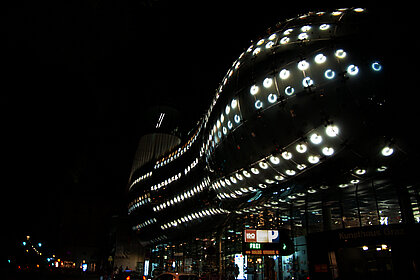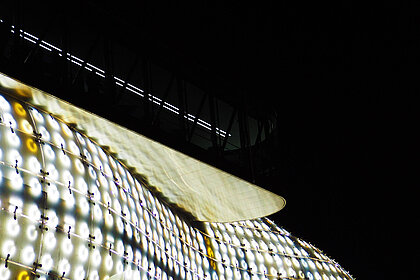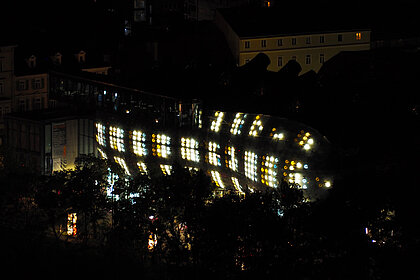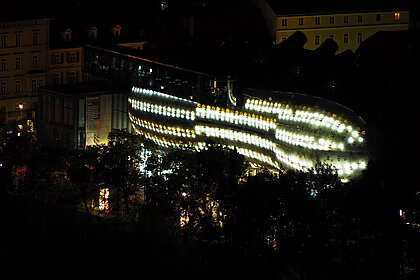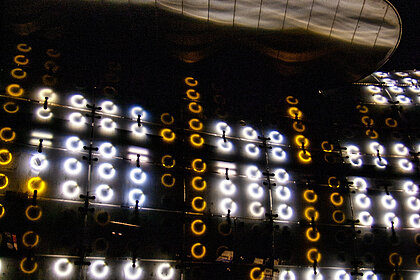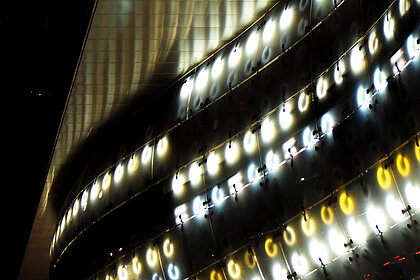The Kunsthaus Graz becomes a sound machine
The young audio-visual artist Zalán Szakács describes himself as a “post-digital artist”. Looking for ways out of the digital world and into a sensually perceptible world, he was inspired by the Russian artist Nikolai Voinov. Voinov was a pioneer in the 1930s who, believing in new technologies for a new world, developed one of the first electronic instruments - the Nivotone. The Nivotone produced electric sounds by playing paper ornaments. Based on these experiments, Szakács endeavours to find ways of bringing the digital back into the world that we perceive with all our senses.
Ornament explores the spatial boundaries of the BIX Facade
Generative grids animate the media architecture and transform the Kunsthaus Graz into a Nivotone machine. Intersecting vertical and horizontal lines create ornamental effects. The collaboration with sound designer Stefan Fraunberger has resulted in a composition that can be heard as part of a video and sound installation in the foyer of the Kunsthaus Graz as part of the springfestival graz. The project is an acoustic foretaste of the exhibition Connected.
From June 28th, a machine orchestra will be seen and heard in Space01
In 1924, George Antheil developed an orchestral composition for the film Ballet mécanique by Fernand Léger and Dudley Murphy, including 16 machine-controlled pianos. The composition was cubism in musical form. He used a bourgeois instrument like the piano to make sounds, which was a radical step at the time. In the 1920s, the performance of machine-operated pianos was not feasible due to technical difficulties. For the exhibition Connected, Winfried Ritsch is creating a new interpretation of the composition; for the first time, the score for the Ballet mécanique is to be performed entirely under machine control.
